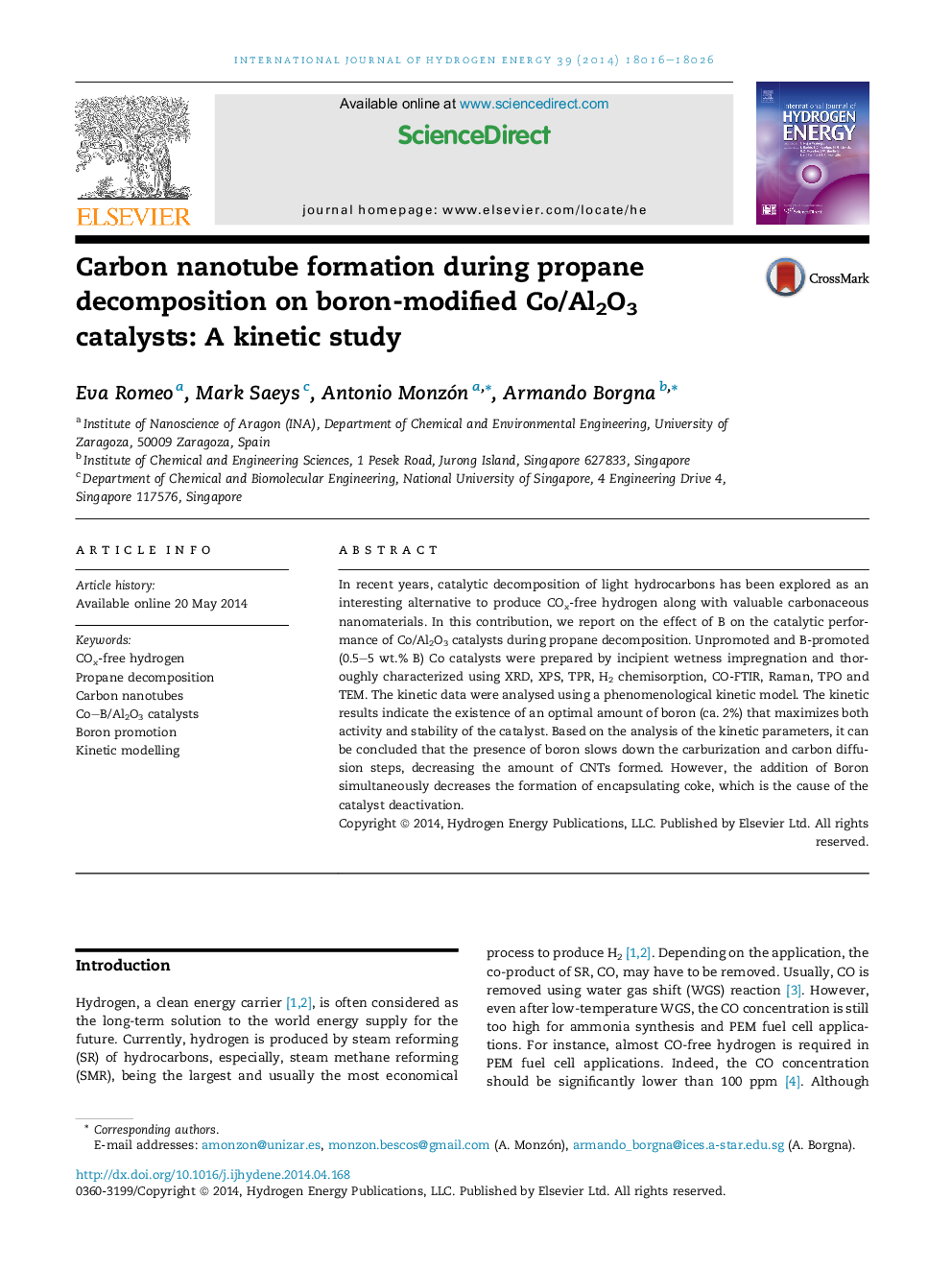| Article ID | Journal | Published Year | Pages | File Type |
|---|---|---|---|---|
| 1271898 | International Journal of Hydrogen Energy | 2014 | 11 Pages |
•Co–B catalysts are effective to produce COx-free H2 and carbonaceous nanomaterials.•B slows down carburization and carbon diffusion, but decreases the encapsulating coke.•An optimal amount of boron (ca. 2%) exists, maximizing both activity and stability.
In recent years, catalytic decomposition of light hydrocarbons has been explored as an interesting alternative to produce COx-free hydrogen along with valuable carbonaceous nanomaterials. In this contribution, we report on the effect of B on the catalytic performance of Co/Al2O3 catalysts during propane decomposition. Unpromoted and B-promoted (0.5–5 wt.% B) Co catalysts were prepared by incipient wetness impregnation and thoroughly characterized using XRD, XPS, TPR, H2 chemisorption, CO-FTIR, Raman, TPO and TEM. The kinetic data were analysed using a phenomenological kinetic model. The kinetic results indicate the existence of an optimal amount of boron (ca. 2%) that maximizes both activity and stability of the catalyst. Based on the analysis of the kinetic parameters, it can be concluded that the presence of boron slows down the carburization and carbon diffusion steps, decreasing the amount of CNTs formed. However, the addition of Boron simultaneously decreases the formation of encapsulating coke, which is the cause of the catalyst deactivation.
Graphical abstractFigure optionsDownload full-size imageDownload as PowerPoint slide
